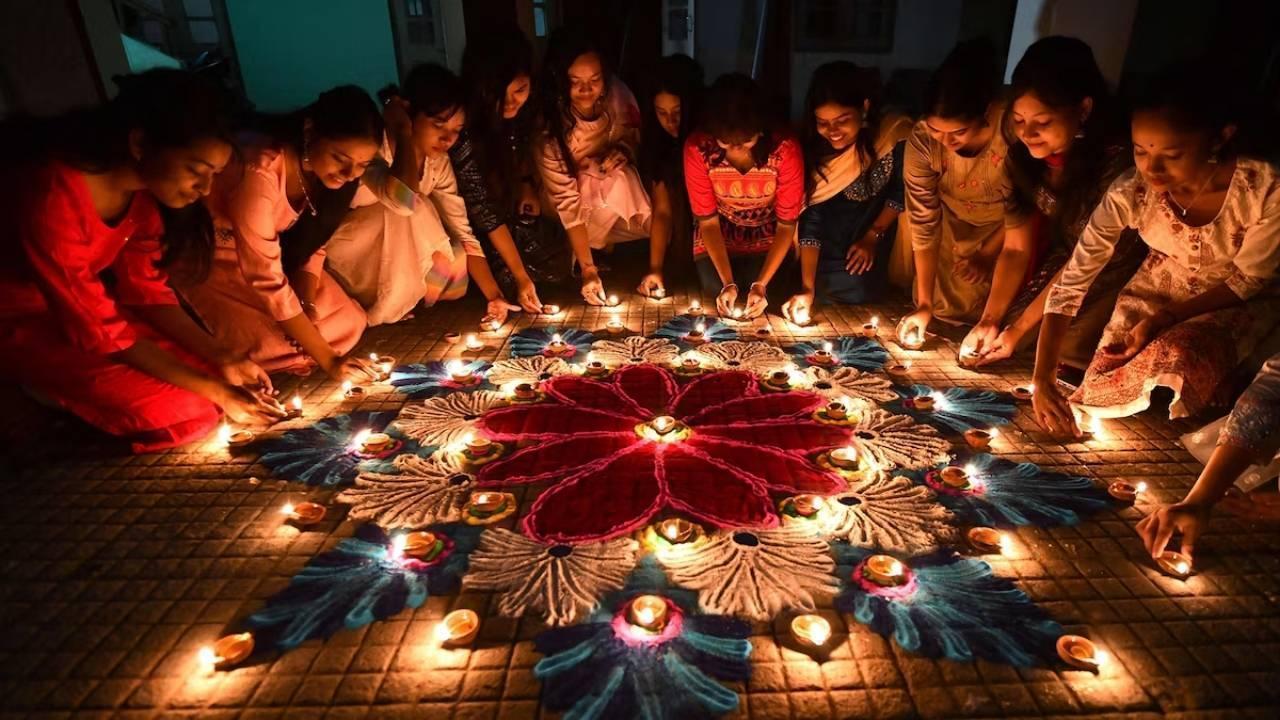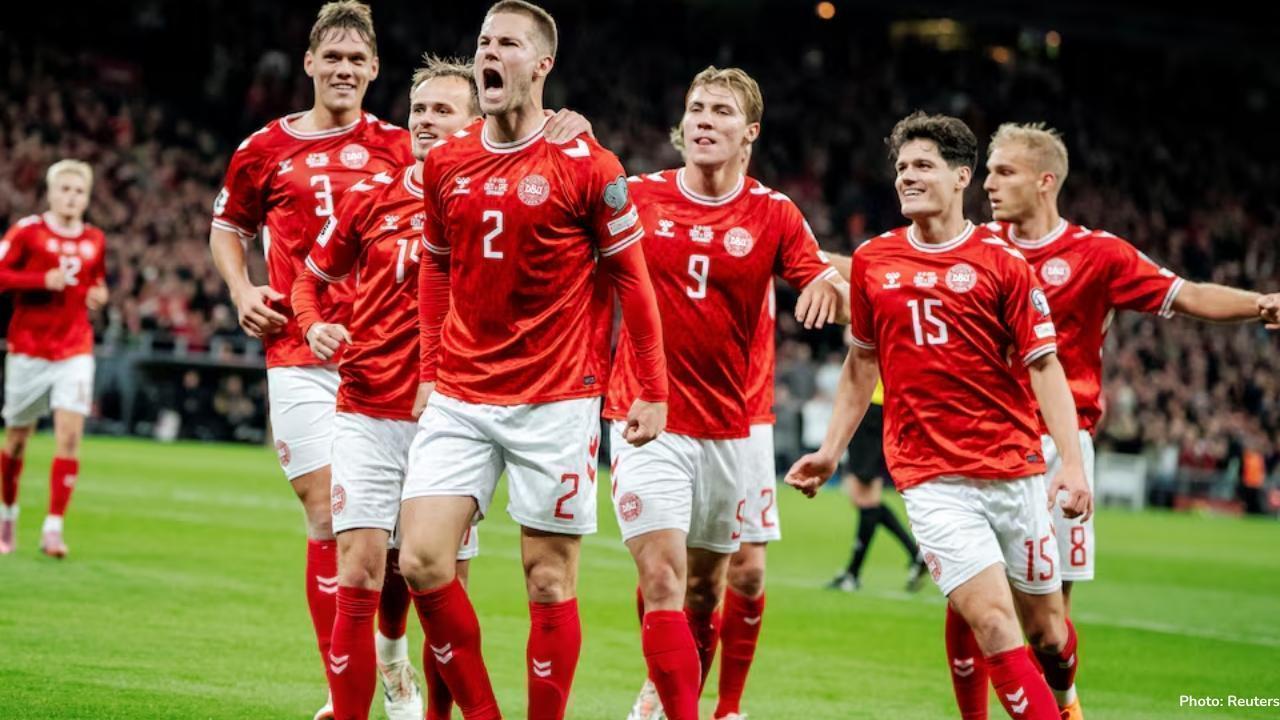
Post by : Anish
The world is witnessing a historic transformation in global power dynamics. Traditional power centers like the United States and Europe are sharing influence with emerging nations such as India, Brazil, China, and parts of Southeast Asia. This trend towards a multipolar world is reshaping diplomacy, trade, and security strategies globally.
Emerging powers are increasingly asserting themselves in international forums, from the United Nations to climate summits. Their economic growth, demographic advantages, and technological innovation position them to influence global decisions more than ever before. As a result, the international system is moving away from a unipolar or bipolar model toward a more complex, multipolar configuration.
Economic expansion drives geopolitical influence. Nations with growing GDPs, robust industrial sectors, and innovative technology are gaining leverage on the world stage. India’s rapid digital economy, Brazil’s agricultural prowess, and Southeast Asia’s manufacturing hubs exemplify this trend.
Economic strength enables emerging nations to invest in defense, infrastructure, and regional partnerships. It also allows them to participate more actively in global institutions, shaping policies related to trade, climate, and technology. Economically empowered nations can negotiate from positions of strength, influencing rules that were previously dominated by established powers.
The multipolar world is characterized by evolving alliances. Traditional alliances like NATO remain important, but new partnerships are emerging. For example, the BRICS nations (Brazil, Russia, India, China, South Africa) are increasingly coordinating on economic and political initiatives.
Regional alliances are also strengthening. ASEAN nations are fostering collective security and trade agreements to counterbalance external pressures. Similarly, Africa is witnessing a surge in inter-country collaboration to boost trade, infrastructure, and technology adoption. These shifting alliances highlight a diversification of power centers and a move away from dependence on a single superpower.
Technology is a key factor in determining global influence. Emerging nations are investing heavily in artificial intelligence, renewable energy, digital infrastructure, and space programs. China’s dominance in AI and satellite technology, India’s space exploration initiatives, and Southeast Asia’s digital transformation projects exemplify how technology is redefining global power structures.
Technological innovation not only strengthens domestic economies but also enhances global influence. Nations that lead in critical technologies can set standards, control supply chains, and assert soft power in international negotiations. Technology-driven influence is increasingly as important as traditional military and economic power.
Military capabilities remain central to geopolitical influence. Emerging powers are modernizing their armed forces, investing in advanced weaponry, cyber defense, and maritime security. India’s naval expansion in the Indian Ocean, Brazil’s strategic military exercises, and China’s growing military presence in the South China Sea illustrate this trend.
Strategic posturing enhances a nation’s bargaining power in diplomatic negotiations and regional security arrangements. It also serves as a deterrent, signaling to both allies and adversaries that the nation is prepared to defend its interests.
Natural resources continue to drive geopolitical strategy. Access to energy, minerals, and water is increasingly critical as emerging economies grow. Countries with rich natural resources leverage them for strategic partnerships, trade agreements, and regional influence.
For instance, African nations with vast mineral reserves are engaging in infrastructure and technology partnerships with China, Europe, and the U.S. Similarly, India’s investments in renewable energy partnerships across Asia demonstrate how resource diplomacy can enhance soft power. Control over critical resources has become an integral tool of 21st-century diplomacy.
International institutions like the United Nations, World Bank, and IMF are being reshaped by the rise of emerging powers. These nations seek greater representation and influence in global decision-making processes.
For example, the push for reforms in the UN Security Council reflects the demand for a more representative global governance structure. Similarly, BRICS nations are establishing alternative financial institutions to counterbalance Western dominance. The evolution of international institutions will determine how effectively the global community can address shared challenges in a multipolar world.
Economic interdependence continues to influence geopolitics. Trade relationships, supply chain networks, and investment flows create mutual dependencies that can stabilize or complicate international relations.
Emerging nations are simultaneously cooperating and competing. China’s Belt and Road Initiative demonstrates strategic investment and influence-building, while India and Japan are strengthening regional trade agreements to assert their own positions. This delicate balance of cooperation and competition defines modern multipolarity and shapes regional stability.
Climate change is a growing arena for geopolitical influence. Nations that lead in sustainability, renewable energy, and climate finance are gaining global recognition and leverage.
India’s solar initiatives, Brazil’s Amazon conservation efforts, and China’s green technology investments exemplify how climate diplomacy is intertwined with national prestige. Leadership in environmental action strengthens soft power, attracts international investment, and fosters strategic alliances in a multipolar context.
Emerging powers are increasingly involved in regional conflicts, either as mediators or participants. Their involvement affects global stability, trade, and energy security.
For instance, Southeast Asian disputes over maritime boundaries, African regional conflicts, and tensions in South Asia require intervention and negotiation from regional powers. The capability of emerging nations to influence outcomes demonstrates their growing diplomatic and military clout in regional affairs.
The global economy is no longer dominated by a single center of power. Emerging markets contribute an increasing share of global GDP, investments, and technological output.
This multipolar economic landscape allows countries to diversify partnerships, reduce dependence on traditional economic hubs, and leverage regional strengths. For instance, Southeast Asian trade networks are expanding independently of Western influence, while India’s economic integration into Asia boosts its global standing. Multipolarity in economics reinforces political and strategic multipolarity.
While the rise of emerging nations creates opportunities, it also brings challenges. Competition for influence can lead to tensions, trade disputes, and regional instability. Differing priorities among powerful nations complicate global coordination on issues like climate change, health crises, and conflict resolution.
Additionally, unequal development levels, corruption, and governance challenges in emerging economies may limit their ability to fully leverage new opportunities. Building resilient institutions, fostering transparency, and promoting inclusive growth are essential for maintaining a stable multipolar world order.
Global diplomacy is evolving in response to multipolarity. Emerging nations are increasingly proactive in shaping agendas, mediating conflicts, and establishing alternative alliances.
Diplomatic strategies now involve multilateral engagement, regional cooperation, and technology-driven initiatives. Nations that can balance assertiveness with collaboration are best positioned to thrive. The future of diplomacy will require flexibility, cultural understanding, and a willingness to engage with diverse partners on complex global challenges.
The world is entering a new era of multipolarity, where emerging nations exert growing influence across economic, political, technological, and environmental domains. This transformation presents opportunities for global collaboration but also challenges in managing competition and regional instability.
Understanding the drivers of this shift — economic growth, technological innovation, military modernization, and climate diplomacy — is essential for policymakers, businesses, and citizens. By navigating these changes thoughtfully, nations can leverage multipolarity to create a more balanced, resilient, and interconnected global order.
This article is for informational purposes only. It reflects recent trends in global geopolitics and does not constitute professional advice. Readers should consult authoritative sources and experts for detailed analyses and guidance.
geopolitics, power shift










Lazio Denies Qatari Sale Rumors, Files Legal Complaints
Lazio refutes online claims of Qatari takeover talks, files reports with Italian regulators and judi

Penn State Fires Coach Franklin After Third Straight Loss
Penn State parts ways with James Franklin after 3 conference defeats, naming Terry Smith as interim

Denmark Beats Greece 3-1 to Stay Top in Qualifiers
Denmark wins 3-1 at home over Greece, keeps unbeaten record, and stays ahead of Scotland in Group C

Panthers Edge Cowboys 30-27 with Dowdle’s Big Game
Rico Dowdle dominates former team with 239 total yards as Panthers win 30-27 over Cowboys by last-se

Mariners Beat Blue Jays 3-1 to Win ALCS Game 1
Seattle shuts down Toronto’s bats and wins Game 1 of the ALCS 3-1, with strong pitching and timely h

Dutch Government Seizes Control of China-Owned Chipmaker Nexperia
The Netherlands government steps in over governance risks at Nexperia, suspends its Chinese parent’s